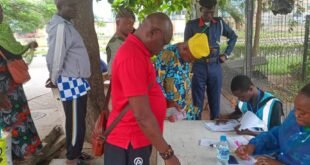These are the highlights of the National Assembly performance report, due to be released this week by OrderPaper, Nigeria’s leading parliamentary monitoring organisation and public policy think tank.
The performance report, prepared through a detailed, objective and data-driven analysis of bills drafted in the first year of the 10th National Assembly, shows a significant gap between the sponsorship and progress of legislative drafts.
The data also showed that more than half of the bills introduced in the Senate between June 2023 and May 2024 were recycled from previous chambers, particularly the ninth chamber immediately following. In a similar finding, nearly a third of the bills drafted in the House of Representatives during the same period were resurrected from the past. This trend raises serious concerns about potential copy-and-paste legislation and further fuels speculation about the marketing of bills in the federal legislature.
OrderPaper’s analysis shows that from June 2023 to May 2024, the Senate presented 475 bills, of which only 19 were approved, while 416 remain blocked awaiting the second reading.
Similarly, out of 1,175 bills introduced in the House of Representatives during the same period under review, only 58 were approved, while the vast majority of 967 are awaiting a second reading.
Among the various other data sets produced by the inimitable OrderPaper analysis, 15 senators did not sponsor a bill while 149 members of the House, representing 12.6% of the total membership, did not sponsor a bill during the period under study. Notably, 62% of these representatives in the green chamber without bills to their name are first-time legislators.
The performance report also highlights a troubling lack of attention to critical issues of national importance. Bills related to agriculture and food safety account for only 5.8 percent of total House bills and 7.3 percent of Senate bills. Security-related bills account for 7.2 percent of House bills and 5.4 percent of Senate bills. Despite the significant challenges faced by citizens in these areas in recent years, bills addressing these issues remain few, with many not even making it past first reading.
The different data sets of the performance scorecards will be published on the official website of OrderPaper: https://orderpaper.ng/

Voters of the 469-member National Assembly, political and business leaders, civil society organizations and the general public are encouraged to follow OrderPaper’s website and social media pages.
Commenting on these key findings of the highly anticipated and impressive first-year performance report of the 10th National Assembly, Oke Epia, Founder and Executive Director of OrderPaper, said the flood of bills being introduced by lawmakers and the slow pace of progress in their development highlighted a real challenge the National Assembly has faced over the years: getting bills to the legislative finish line.
Epia said that while OrderPaper points out that its annual reports on the performance of the National Assembly over the years have led to an increase in the number of bills introduced by lawmakers, citizens have a responsibility to look beyond the volume and focus more on progress, value and impact.

“Citizens must hold legislators accountable by focusing not only on the quantity but also on the quality and impact of their work in the development of bills in parliament,” he said, adding that: “OrderPaper Nigeria calls for urgent action by legislators, citizens and partners in parliament to distribute these performance scorecards to push for impactful legislative governance. We must move from vain boasting about sheer volume that willy-nilly results in stalled bills, to impactful legislation that addresses Nigeria’s urgent challenges.
“The gap between promises and progress must be bridged for the Tenth Assembly to realize its potential.”
Joy Erurane, Programme Manager (Creativity and Innovation) at OrderPaper Nigeria, detailed the approach and focus of this year’s performance report card, saying the team carried out an in-depth sectoral analysis of the bills drafted to cover key areas such as education, health, economic development, security and public finance.
“This approach enables stakeholders in these sectors to better manage legislative impacts and facilitate decision-making,” he said, adding: “The data, which was sourced from the National Assembly records and subjected to several integrity tests, highlights the imbalance in sectoral coverage of bills and the worrying trend of bill sponsorship without follow-through. While reviving bills from previous assemblies is not inherently bad, it points to the need for genuine legislative engagement to avoid what has been termed legislative plagiarism in the literature. It also raises questions about the accuracy of legislative representation and citizen engagement in critical decision-making.”


●》About OrderPaper
OrderPaper is Nigeria’s leading independent parliamentary monitoring organisation and policy think tank bridging the gap between the people and parliament. Our vision is to be the most authoritative organisation of choice and reference for parliamentary reporting, advocacy and public policy advice in Africa. We are committed to providing simple, authoritative parliamentary data that empowers citizens and informs decision-making.
For over five years, OrderPaper has consistently provided credible annual assessments of the performance of National Assembly members. Our #NASSReportCards are recognized for their unparalleled accuracy, attention to detail, and in-depth analysis. This has earned our work undisputed credibility, as validated by the accolades received from National Assembly members, civil society actors, and other stakeholders.
Electronically signed
Ok Epia
September 2, 2024
The post OrderPaper Performance Report Card: Surge, Slow Progress, and Bill Recycling Mark the 10th National Assembly’s First Year appeared first on TheConclaveNg.
 JamzNG Latest News, Gist, Entertainment in Nigeria
JamzNG Latest News, Gist, Entertainment in Nigeria









